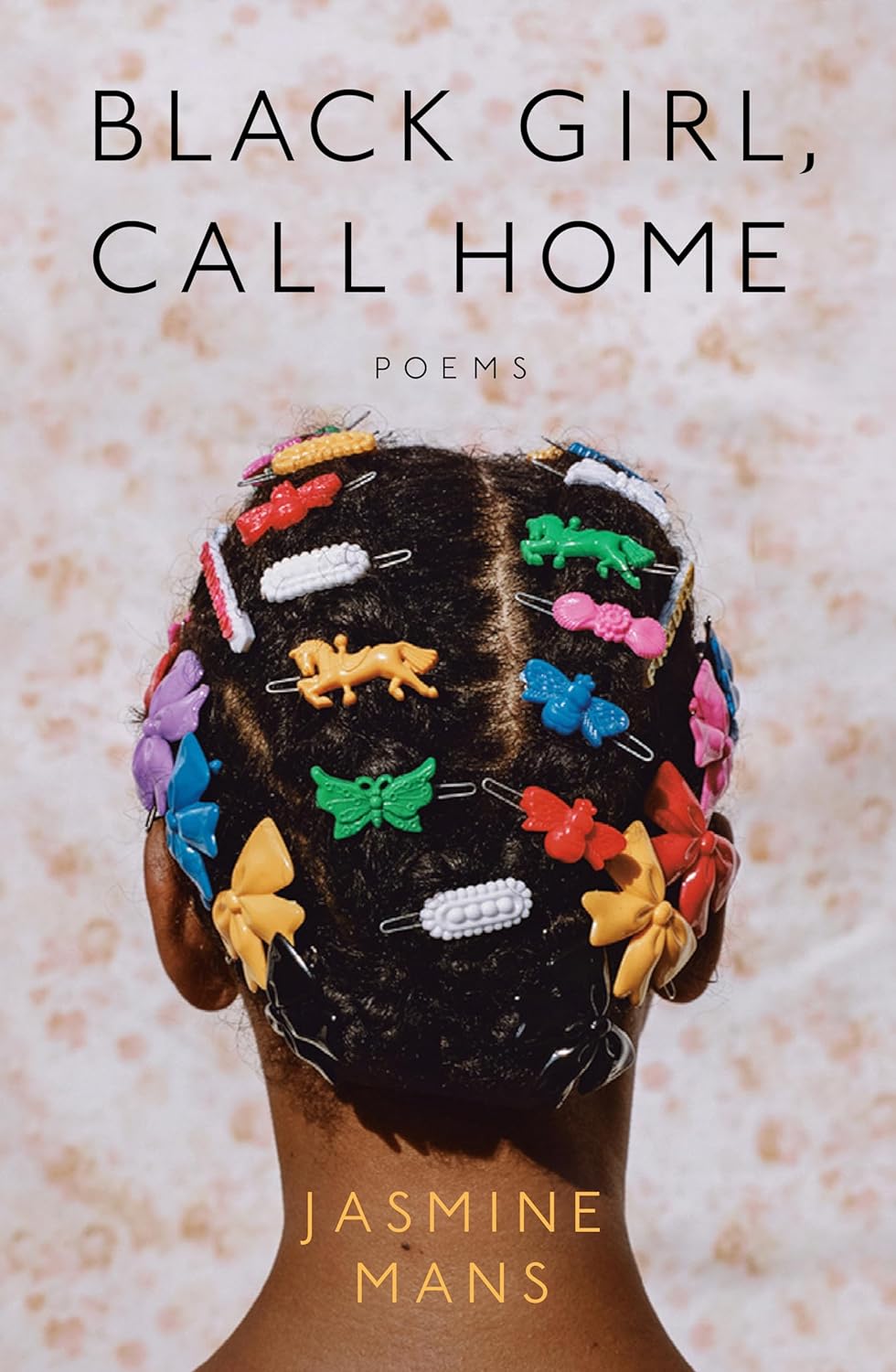Review of Black Girl, Call Home by Jasmine Mans

Black Girl, Call Home
Jasmine Mans
Berkley, 2021, 256 pages
$17.00
Reviewed by Grace Gaynor
I have always struggled to claim my girlhood, to look back on my time spent as a child and believe in the purpose and worth I possessed as a young Black girl. For many Black women, this turmoil is recognizable, especially when a multitude of portrayals and celebrations of girlhood are built upon depictions of femininity steeped in whiteness. Since my first reading of Black Girl, Call Home by Jasmine Mans, I’ve carried my copy everywhere, the fully realized depiction of Black girlhood always feeling familiar and empowering. The love with which Mans discusses the experiences of Black girls and women is powerful enough to permeate the frost of a culture that disregards those who have been categorized as Black and female. In her book, Mans carefully considers the lives of Black girls and women and discusses a wide array of experiences, from meticulous cultivation of appearance and identity to the pressure of fitting in. With powerful and revealing messages that culminate in an intricate portrayal of existence as a Black girl, Black Girl, Call Home speaks to and with those who are often ignored in our society.
As a collection that acknowledges the intricate experiences of Black girls, Black Girl, Call Home aptly opens with two poems that discuss the beauty standards associated with Black girlhood. The first piece, entitled “I Ain’t Gon’ Be Bald Headed No More,” utilizes its simplicity to poignantly call attention to the pressure placed on Black girls to be hyper-conscious of physical appearance. As the speaker discusses her plans to get her hair done, she remarks that her hair has grown and goes on to say: “when I wear it out at school, / the rest of the girls / won’t call me bald-headed / no more” (2). The speaker feels that her chance to be considered acceptable and beautiful rests on the length and style of her hair, an idea further emphasized through the lines “Imma be pretty, / as soon as momma gets home / from work” (2). The speaker’s knowledge of the beauty standards that are constantly applied to her existence is revealed by her innate correlation between hair and being perceived as pretty. The following piece, “Momma Has a Hair Salon in the Kitchen,” takes the form of a lengthy list of items, terms, and sayings traditionally associated with taking care of Black hair. Throughout the piece, Mans juxtaposes words such as “poison” and “natural,” demonstrating the confusing messages that Black girls and women receive regarding their hair. Along with the previous piece, this poem further emphasizes the complicated nature of Black existence, especially in conjunction with the process of cultivating femininity.
For Black girls, noncompliance with the appearance and self-identity norms fabricated by those around them signifies a magnification of the oppression they face daily, demonstrated through retrospective pieces in Black Girl, Call Home. In “Momma Said Dyke at the Kitchen Table,” the speaker describes the experience of being told to refrain from adopting certain self-expressions simply because of categorization as a Black girl. This experience is exemplified through the reaction of the speaker’s mother to her coming out: “don’t you know / how hard it already is / for women like us, / why you gonna go / and make it harder on yourself?” (23). Mans utilizes this interaction to allude to the experiences of Black girls who do not comply with gender expectations, as Black women and girls are already alienated from the “ideals” of femininity because of racial categorization. The analysis of this experience sheds light on the difficulties Black women and girls face when they break away from the norms applied to them on the axis of race, sexuality, and gender identity.
The unique lives of Black girls and women are often not valued within our society because they have not been visible in conjunction with the work to uplift, empower, and acknowledge those experiencing girlhood and womanhood. Black Girl, Call Home not only demonstrates an effort to shed light on the lives of Black girls and women, but it treats these experiences with care. In her stunning collection, Jasmine Mans utilizes poetry to reveal the intricacies, triumphs, and struggles associated with Black girlhood in a way that Black girls and women deserve.
Grace Gaynor is a writer from Louisville, Kentucky. She earned her BA in English from Hollins University and is currently an MFA student studying creative writing at Virginia Tech. She is a Sinister Wisdom intern and serves as an editor for the minnesota review and SUNHOUSE Literary.
"Empowerment comes from ideas."
― Charlene Carruthers
"Your silence will not protect you."
— Tourmaline
"Gender is the poetry each of us makes out of the language we are taught."
— Leila Raven


